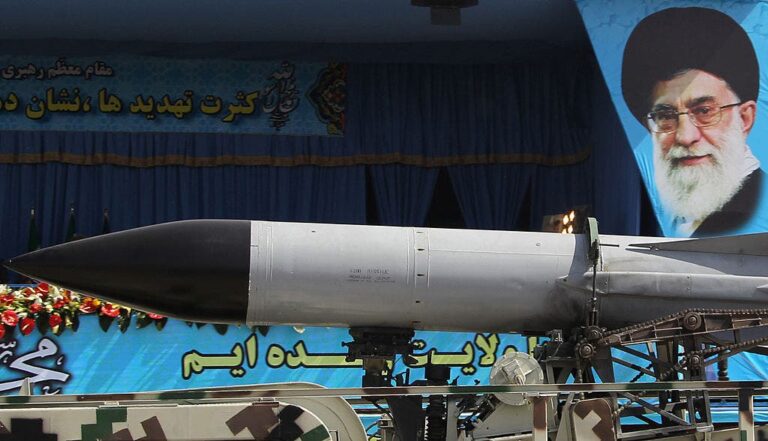The former top security head of the U.S. Central Command (CENTCOM) warned on Thursday that U.S. bases in the Middle East could become overwhelmed by Iranian missile fire.
Retired Gen. Kenneth “Frank” McKenzie, now a Hertog senior fellow with the Jewish Institute for National Security of America (JINSA), is sounding the alarm in a report this week that argued U.S. bases in the Arabian Gulf have become vulnerable to Iranian assault with Tehran’s developments in its weapons capabilities.
“Our basing strategy is outdated and poorly positioned to meet the central threat in the region: Iran,” McKenzie said. “By developing a flexible western basing network for America’s air assets, we will complicate Iran’s ability to target our forces and raise the cost of aggression.”
Gen. Kenneth McKenzie, commander, U.S. Central Command, testifies during the Senate Armed Services Committee hearing on the U.S. Central Command and U.S. Africa Command, in the Dirksen Building on Tuesday, March 15, 2022. (Tom Williams/CQ-Roll Call, Inc via Getty Images)
TOP RUSSIAN OFFICIAL LANDS IN IRAN AMID US, UK CONCERNS OVER ALLEGED NUCLEAR DEAL
In a call with reporters this week, McKenzie explained that some of the U.S.’s top bases in countries like Qatar, UAE and Bahrain – located near Iran and which once served as a deterrent against malign actors – now sit as weak points in the U.S.’s force posture in the region.
As technology and missile development have modernized, base placement needs to be rethought, he argued, noting that Iran is loaded with short-range missile capabilities, while its medium- to long-range abilities are lacking.
“They have spent vast amounts of money and resources in building very capable ballistic missile capabilities – theater range ballistic missiles, land attack cruise missiles and drones,” McKenzie said. “Those three capabilities are relatively new capabilities at scale in the region, and they pose new threats.
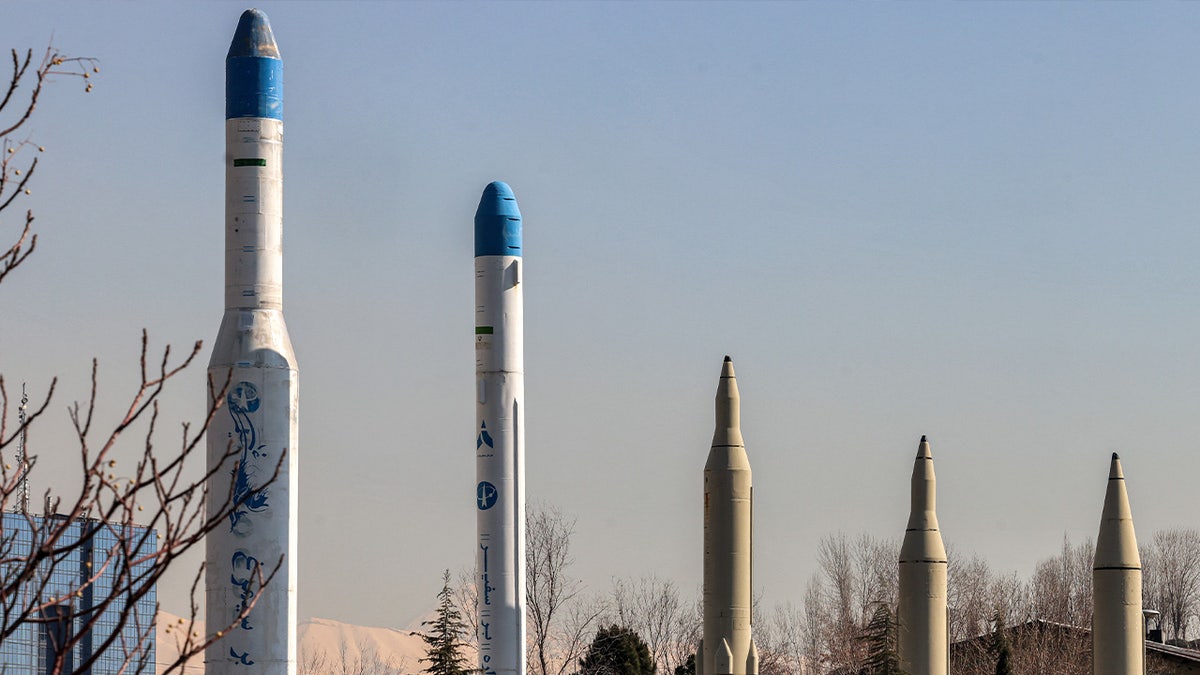
Replicas of Iranian ballistic missiles are displayed outdoors at the Holy Defence Museum (dedicated to the 1980-88 Iran-Iraq war) in Tehran, Iran, on Feb. 7, 2024. (Photo by ATTA KENARE/AFP via Getty Images)
“They can throw more weapons into the fight than we can defend, even with highly capable systems like patriot and other systems that exist,” he added.
The retired general, who sat as CENTCOM commander for three years between March 2019 and April 2022 before retiring from the Marine Corps after 42 years of service, argued the U.S. needs to start seriously working with regional allies like Saudi Arabia, Jordan, Oman and Egypt to relocate bases farther away from Iran.
ISRAELI DEFENSE MINISTER TELLS US ONLY ‘MILITARY ACTION’ CAN RETURN PEOPLE TO HOMES AMID HEZBOLLAH THREAT
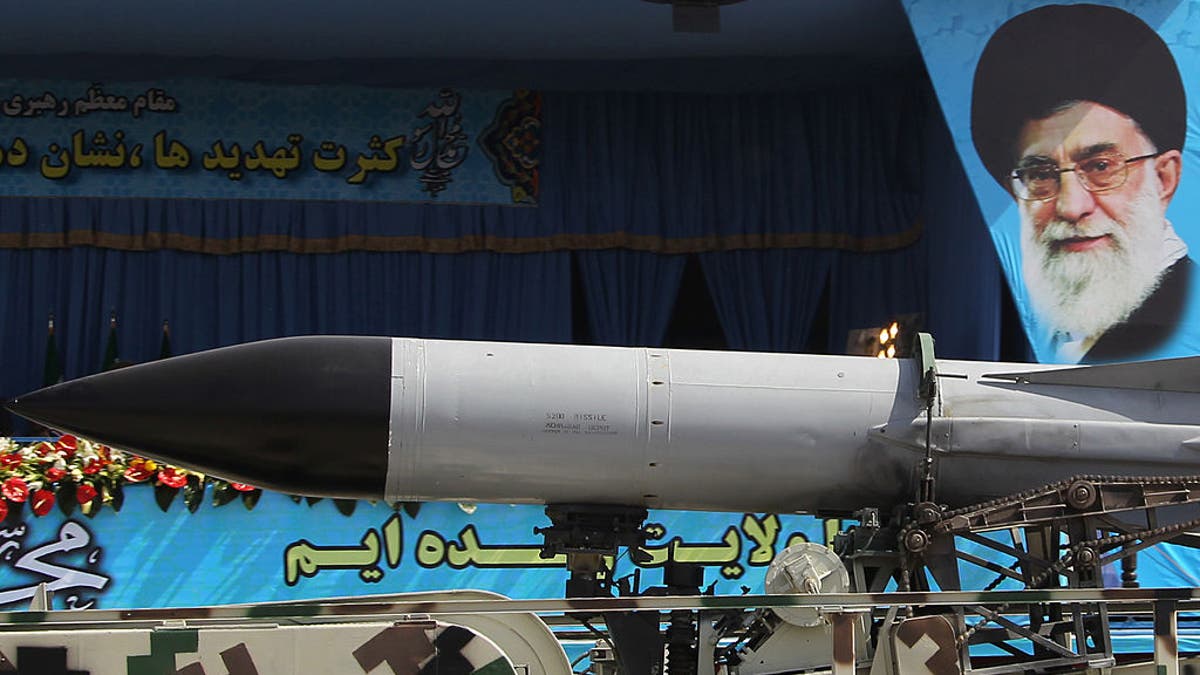
A military truck carries a missile past a portrait of Iran’s Supreme Leader Ayatollah Ali Khamenei during an annual military parade. (ATTA KENARE/AFP/GettyImages)
He said bases should also be identified “as far to the west as possible where [the U.S.] can deploy aircraft, maintenance capabilities, refueling capabilities, and weapons,” but which are out of reach of Iran.
When pressed by Fox News Digital over the willingness of these Middle Eastern nations to allow for the relocation of bases, McKenzie said his proposal has already been addressed with partnering countries in the region.
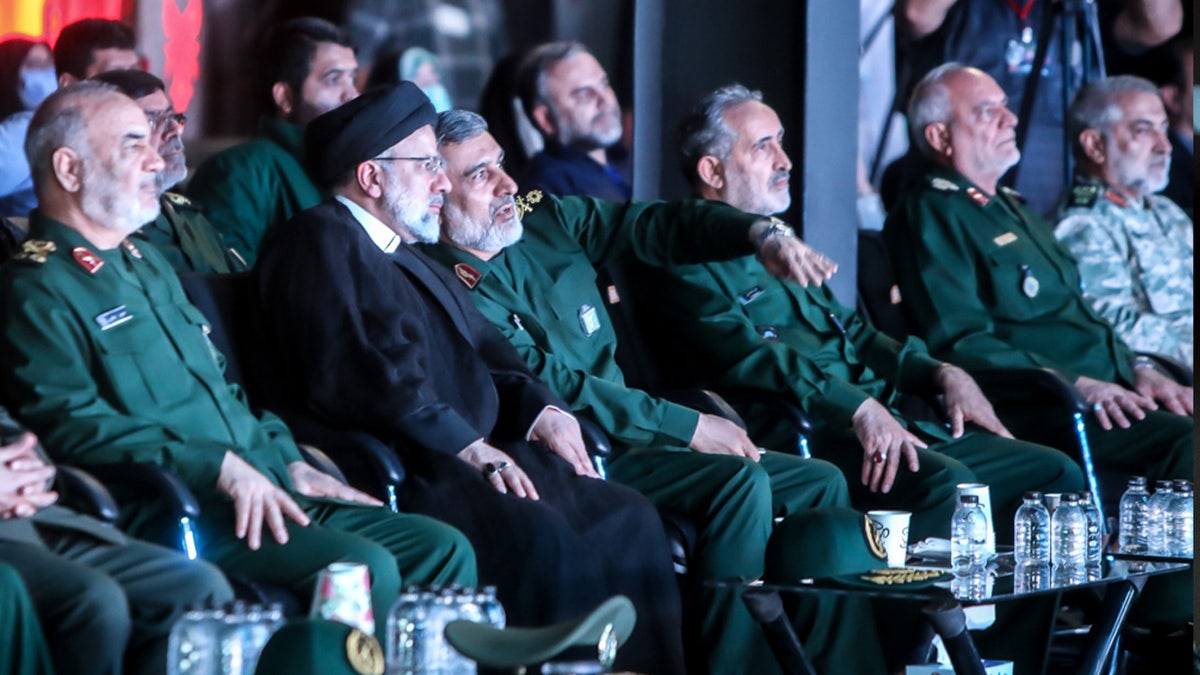
Iran presents its first hypersonic ballistic missile “Fattah” (Conqueror) in an event attended by President Ebrahim Raisi, second from the left, and other government officials in Tehran, Iran, on June 6, 2023. (Photo by Sepah News / Handout/Anadolu Agency via Getty Images)
“This is something that we talked about while I was the CENTCOM commander at the middle to middle level, there’s interest in it,” he said. “Here’s the thing to remember, let’s just pick one country as an example, the Kingdom of Saudi Arabia – improvements to these bases in the west of the country benefit the Saudis more than anyone else.
“These are going to be dual-use bases,” McKenzie explained. “We’re basing there under certain conditions to actually assist in the defense of Saudi Arabia, and it actually increases their own self-defense capabilities.”
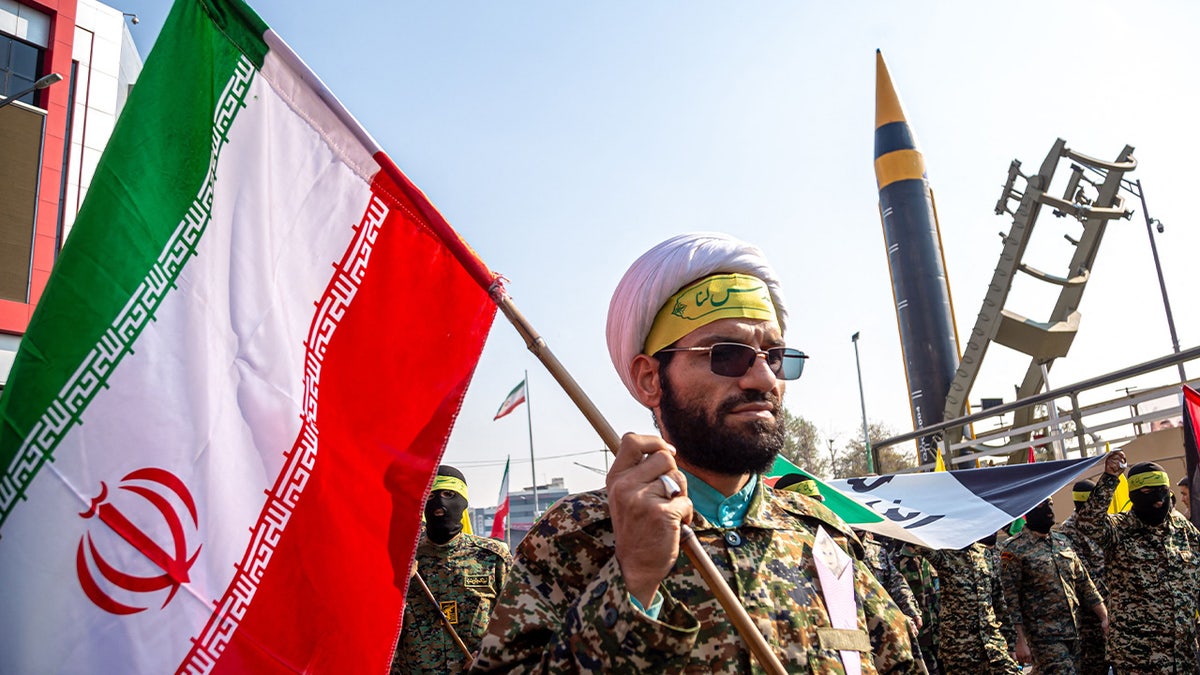
Protesters and members of Iranian paramilitary Basij forces march next to the fourth generation Khorramshahr ballistic missile Khaibar displayed during an anti-Israeli rally to show their solidarity with Palestinians, in Tehran, Iran, on Nov. 24, 2023. (Photo by HOSSEIN BERIS/Middle East Images/AFP via Getty Images)
CLICK HERE TO GET THE FOX NEWS APP
The former CENTCOM commander also pointed out that the direct security threat that Iran poses not only comes from Tehran, it also comes from its use of terrorist groups to fight its proxy wars in the Middle East.
“Deterrence is only obtained by a credible demonstration of will and the capability to fight and win if needed,” McKenzie argued in his report. “Deterrence must be continuous; in the Middle East, it can have a very short half-life unless it is refreshed systematically.”


